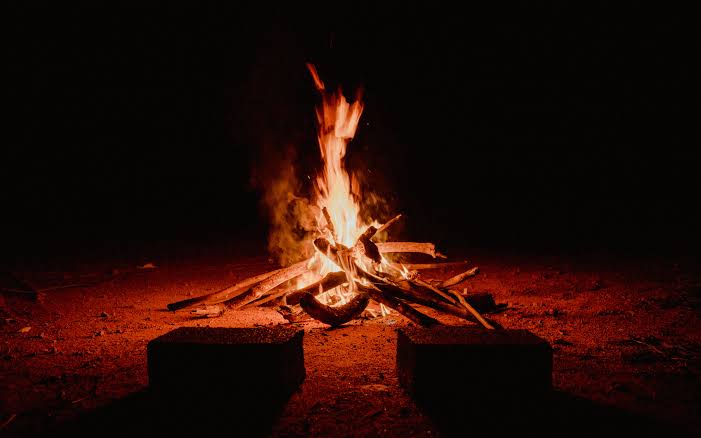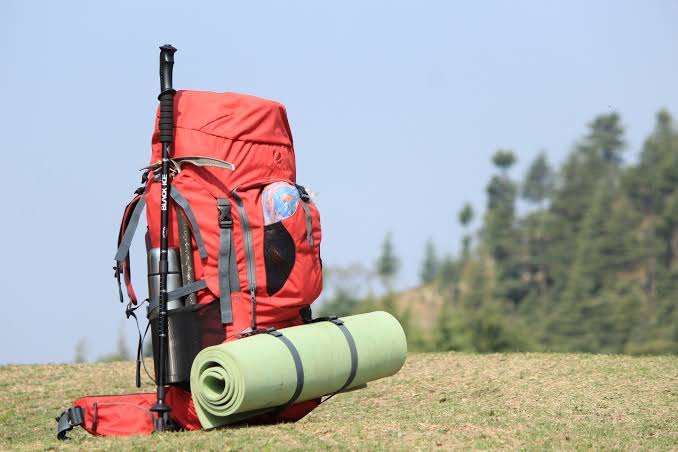Do You Wanna Know What Are The Basic Skills In Hiking
I understand that many newcomers often wonder about the fundamental skills required to thrive in the great outdoors. While planning routes and packing your backpack are undoubtedly crucial, there’s a treasure trove of wisdom that extends beyond the basics.
As a seasoned hiker, I’ve come to realize that hiking is not just about the journey; it’s about mastering a range of skills that can make all the difference.

For multi-day hikers, essential skills include campfire creation, cooking, and campsite setup. Proficiency in using a first aid kit, navigation tools like maps and compasses, and position location are crucial. Optimal gear selection skill is also vital for an enjoyable hiking experience. Day hikers might not require all skills, but they’re integral for longer journeys.
I’m excited to unravel these skills one by one, painting a comprehensive picture of what it truly means to be a hiker.
What Are The Basic Skills In Hiking?
While countless sources emphasize the significance of planning, navigation, and other common advice, what I’m seeking to convey is a different kind of wisdom.
I understand that hiking is more than just charting routes and packing gear; it’s a transformative journey that shapes your connection with nature and yourself.
Use of First Aid Kit
The memory remains vivid in my mind—an instance during a hiking expedition when a swift run turned into a painful fall, leaving my knees battered and wounded.
In that moment of distress, the significance of possessing first aid skills became glaringly apparent. With the assistance of a hiking companion, we delved into the first aid kit, swiftly and effectively addressing the injury.

The ability to staunch bleeding, clean and dress wounds, and provide immediate care was a reassuring beacon in a moment of vulnerability.
This experience cemented the truth that every hiker should be equipped with first aid knowledge. In the heart of nature, where circumstances can swiftly change, the ability to stabilize and comfort oneself or a fellow hiker is akin to holding a lifeline.
It transforms us from mere adventurers into responsible guardians of our well-being and that of others. As I reflect on that incident, I’m reminded that the trails we tread may test us physically and mentally, but with the invaluable skill of first aid, we possess a means to confront adversity head-on and emerge stronger, safer, and more resilient.
Campsite Setup
Crafting a temporary abode demands knowledge of tent setup, shelter building, and securing gear to prevent unwanted guests from sneaking in. It’s about efficiently utilizing space and ensuring that equipment is protected from the elements.

While I may not yet possess this skill, I recognize its undeniable significance in the world of hiking. It’s not just about finding a flat spot and setting up a tent; it’s about harmonizing with the landscape and leaving minimal impact.
Building a campsite requires a deep understanding of the surroundings. Selecting the right spot means considering factors such as water sources, wind direction, and elevation. It’s about finding that perfect balance between proximity to essentials and minimizing ecological disruption.
As I endeavor to learn this skill, I realize that the ability to erect a campsite sensitively not only ensures my comfort but also safeguards the fragile ecosystems I tread upon.
Cooking
Undoubtedly, the skill of cooking stands as a vital pillar in the realm of hiking, especially when one ventures beyond the realm of day hikes into the world of multi-day expeditions.

While day hikes often require minimal sustenance, the landscape shifts when the journey extends over several days. This is where the prowess of cooking becomes a true asset, and from personal experience, I can proudly proclaim myself a proficient trail chef.
As I set out with a well-packed backpack and a carefully curated collection of ingredients, I’m armed with the ability to craft nourishing and delicious meals amidst the wilderness.
From compact stoves to lightweight cookware, the tools of the trade are as essential to me as a map and a compass.
With a keen eye for ingredients that are lightweight yet packed with energy, I craft recipes that fuel the body and lift the spirits.
Whether it’s a steaming bowl of hearty soup to warm the bones on a chilly evening or a vibrant stir-fry that transforms trail rations into a gourmet delight, each dish is a testament to the fusion of skill and passion.
Campfire
While I touched upon cooking earlier, there’s a skill that stands as the very essence of self-sufficiency and survival in the wilderness—building a fire from scratch.
While igniting a gas stove might seem routine, conjuring flames from gathered wood and paper is an entirely different art form. This is a skill I’ve honed through my hiking journeys, one that carries a sense of primal accomplishment and a deep connection with nature.

Gathering wood is the first step, and it’s a lesson in understanding the different types of tinder, kindling, and fuel required for a successful fire. It’s about selecting dry materials that will readily catch fire, paying heed to the nuances of bark, leaves, and twigs.
Once the foundation is laid, there’s a methodical approach to arranging the materials, ensuring proper airflow and a balanced combustion process.
Physical Fitness
While it might not fit the traditional definition of a “skill,” the importance of physical fitness in the realm of hiking cannot be understated. It serves as the cornerstone of an enjoyable and safe hiking experience.
Being in peak physical condition might not demand Herculean strength, but it does require a level of stamina and readiness that allows you to navigate trails with ease.

Even for those embarking on smaller-scale hikes, a baseline of fitness is imperative. It ensures that the rhythmic motion of your steps doesn’t become a daunting struggle and that you can immerse yourself in the beauty of your surroundings without undue fatigue.
Maintaining physical fitness also acts as a form of self-care during hiking. It safeguards against injury by preventing muscle strain and promoting better balance.
When the path gets steep or the terrain rugged, your body’s preparedness becomes a shield against potential hazards.
Physical fitness enhances mental resilience, as a fit body often translates into a clearer mind, ready to embrace the challenges and enjoy the rewards that the trail offers.
Packing Backpack
Indeed, the art of packing a backpack is a skill that goes beyond mere convenience; it’s a cornerstone of a successful hiking expedition. I’ve had the pleasure of hiking alongside a skilled companion, one who can navigate rugged terrains with ease, yet stumbles when it comes to efficiently arranging their backpack.

It’s a reminder that this skill is often underestimated but holds immense importance. A well-packed backpack can be the difference between a harmonious journey and a constant struggle.
In the wilderness, every ounce counts, and each item’s placement can impact your balance and mobility. There’s an unwritten wisdom in knowing where to place heavy gear for stability, how to access essentials without disrupting the entire order, and how to protect fragile items from the rigors of the trail.
As you embark on your hiking journey, remember that mastering this skill is not just about efficiently using space; it’s about crafting a harmonious relationship between you, your gear, and the path ahead.
Recognition of Plants and Animals
While not a mandatory skill for hiking, the ability to recognize and appreciate the flora and fauna introduces an element of connection that’s both educational and enriching.
Identification of different plants and animals adds a fascinating layer to the tapestry of hiking experiences. I can vividly recall a time when my knowledge of general flora and fauna was limited, confined to what I’d learned in passing.

Yet, through the immersive journey of hiking, I’ve transformed, evolving into a keen observer and connoisseur of the natural world around me.
Common Mistakes And Concerns
Having observed many fellow hikers over the years, I’ve noticed a few common concerns and mistakes when it comes to mastering the basic skills of hiking.
Physical Fitness
One of the most prevalent misconceptions is underestimating the importance of physical fitness. While you don’t need to be a fitness guru, a certain level of stamina is essential. I’ve seen people struggle on the trails due to a lack of preparation, leading to exhaustion and diminished enjoyment.
Packing
Another frequent oversight is in the realm of packing your backpack. It’s not just about stuffing your gear; it’s about optimizing space, distributing weight evenly, and ensuring accessibility to essentials.
I’ve seen hikers wrestling with bulky packs or searching endlessly for items buried at the bottom. Proper packing truly makes a world of difference.
Campsite settling
The art of setting up a campsite at night is an aspect that hikers sometimes neglect. I’ve seen campfires too close to tents or incorrectly assembled shelters, compromising safety and comfort. Building a campsite requires thoughtfulness about terrain, wind direction, and proximity to water sources.
Enthusiasm
Enthusiasm is important, overestimating your abilities can lead to overexertion. People sometimes push themselves too hard, attempting hikes that are beyond their current skill level. It’s vital to choose hikes that match your fitness and experience, gradually progressing to more challenging trails.
Weather Forecast
A common error lies in not checking the weather forecast before setting out. Sudden weather changes can catch hikers off guard and lead to dangerous situations. Being prepared for potential weather fluctuations ensures you have the right gear and are equipped to handle unexpected conditions.
Conclusion
In conclusion, my journey as an experienced hiker has revealed that while the allure of the trail is undeniable, mastering the basic skills is the foundation upon which memorable and safe hiking experiences are built.
From physical fitness and proper packing to navigation, campsite setup, and responsible outdoor conduct, each skill is a thread woven into the fabric of successful hiking.


